
PPIC's Process Scale Up Workshop
The Plant Protein Innovation Center hosted its second workshop with the theme of Process Scale Up at the Coffman Memorial Union on November 6-7. The workshop focused on the challenges and opportunities of scaling different unit operations for alternate protein ingredients and products. The day and a half program was kicked off with keynote speaker, Kip Underwood, the CEO of Burcon NutraScience Corporation. Kip provided valuable perspectives on the challenges and opportunities of scaling up next generation protein technologies, and how collaboration among companies is often the key to success.
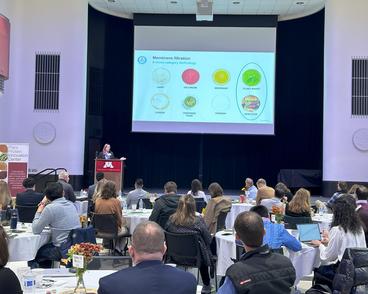
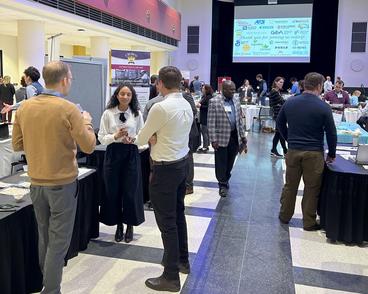
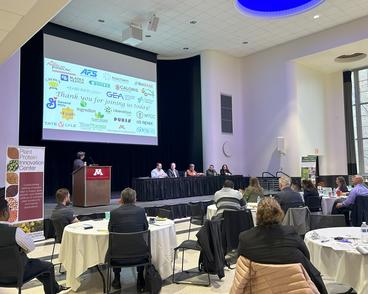
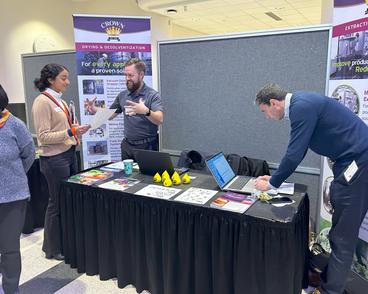
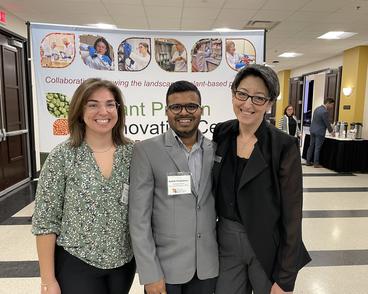
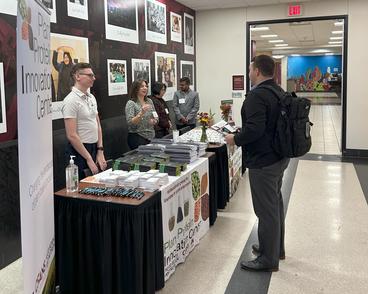
Process Scale Up Speakers
Keynote Speaker:
Kip Underwood, CEO, Burcon NutraScience Co.

Biography
Kip Underwood is the CEO of Burcon NutraScience Corporation. Burcon is a global technology leader in the development of plant-based proteins for foods and beverages. Kip began his career with Protein Technologies, International and has been involved in the plant protein industry for over 25 years. He has a cross functional background including roles in manufacturing, planning, sales, and marketing as well as leadership roles at both a regional and global level. Kip’s recent roles include NAFTA Regional President with DuPont Nutrition & Health and General Manager & Vice President of Sales at Benson Hill. He holds an MBA from Saint Louis University and a B.S. in Chemical Engineering from University of Missouri-Columbia.
Presenting: Scaling: How Different Organizations See the Challenge.
Commercialization or “scaling” is often unique to individually organizations. Yet, collaboration between companies is often a key to success. How do we understand different viewpoints so that we can harness differences as a strength rather than a barrier to success.
Nickolas Broches, Food Application Scientist, Amano Enzyme USA

Biography
Nickolas Broches is an food application scientist a Amano Enzyme, USA. Nick received a B.A. degree in Molecular and Cellular Biology, and a M.S. degree in Food Science and Human Nutrition from the University of Illinois. At Amano he specializes in analyzing how enzymes can add value to various food and beverage applications. He and his team investigate market opportunities, conduct experiments on potential applications, and determine how best to apply enzyme technology to commercial processes.
Presenting: Mastering the Art of Enzyme Scale-Up: A Roadmap for Enzyme Discovery and Food Innovation
Enzymes play a critical role in processing and formulating many of the foods we consume every day. They can be utilized to enhance a wide range of plant-based foods and beverages – from flavor and texture all the way to foaming and frothing properties. Join us on a captivating journey as Amano Enzyme unravels nature's secrets, from enzyme discovery to large-scale production and their transformative applications in the food industry. This educational presentation provides invaluable insights for academics and industry professionals alike. Learn how enzymes are integrated into beverages and texturized plant protein products.
James Chapa, Scientist, Novozymes

Biography
James Chapa is a scientist at Novozymes where he utilize his background in Food Science research and development. He obtained a B.S. and M.S. in Food Science from NC State and Purdue University, respectively. At Novozymes he works with plant protein and plant-based meat applications in the Technical Services Food & Beverage group.
Presenting: Introduction to the Production and Application of Enzymes for Plant-based Foods
Enzymes are high-performance tools to unlock functionality of plant-based food ingredients; for example: solubilizing sugars and proteins from oats to produce alternative dairy beverages; altering starch structure to inhibit staling, keeping bread fresher, longer; and cross-linking proteins to modulate texture in plant-based meats. This presentation introduces (1) how enzymes are sustainably produced at an industrial scale; (2) considerations when applying enzymes in food manufacturing–such as time, temperature, pH, and dose; and (3) how microbial transglutaminase (MTGase) can potentiate targeted plant-based meat textures without the need for common binders such as methylcellulose. The application deep dive will include closer looks at microstructural changes, screening of protein ingredients for performance, production of plant-based burgers and sausages at lab and pilot scales using real process equipment, and characterization via texture analysis and sensory. Participants should leave with a better understanding of enzymes and how to apply them to achieve specific goals.
Denis Chéreau, General Manager & Founder, IMPROVE SAS
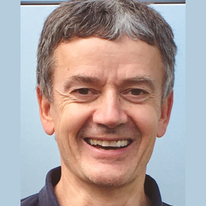
Biography
Denis Chéreau is the general manager and founder of IMPROVE SAS, 1st R&D centre dedicated to plant-based protein. He also sstarted up Lyven, a biotech company specialized in enzyme production. He then worked in the starch industry as technical or plant manager in France and the USA. He is also the managing director of PIVERT, R&D platform expert in Green Chemistry & Biotech and ITERG expert in oil seed and plant-based fat processing with strong capabilities in oleo chemistry, analytics, human nutrition and environmental studies. Prior to his current roles, he also participated in the creation of the Lyven SA, a biotech company specialized in the production and marketing of enzymes obtained by solid state fermentation for fruit juices, bread-making and animal feed markets. Denis holds a Ph.D. in microbiology obtained at INRA in Dijon in 1986, on the production of single-cell protein by solid state fermentation.
Presenting: Process efficiency in second generation of pulse protein concentrates
The alternative protein market is currently facing challenges with the quality and cost of available protein ingredients. Fortunately, there are groundbreaking innovations ready to align with the needs of both formulators and consumers. In this presentation, we will explore how dry processes are set to play a pivotal role in shaping the future of this market. We will delve into advancements in seed breeding and processing, evaluating their implications and pinpointing additional hurdles. Lastly, we will shed light on the pivotal role of IMPROVE, an R&D center specializing in alternative protein valorization, in supporting customer projects and pioneering novel technologies.
Lalit Chordia, Founder, Thar Process Inc

Biography
Dr. Lalit Chordia has pioneered research, development, manufacturing and commercialization of supercritical fluid technology across multiple industries: food, pharmaceuticals, nutraceuticals, chemicals and energy. He received his BS degree and Phd from IT Madras and Carnegie Mellon University in Chemical Engineering, respectively. In 1982, he co-founded Suprex Corp., and served as VP of Engineering. He formed Thar Technologies in 1990. Thar, a world leader in supercritical carbon dioxide. It has threecompanies: Thar Instruments, a separations science and equipment company sold to Waters Corp. ; Thar Process, a global provider of all-natural food and chemical processing solution; Thar Energy, a developer of advanced alternative green energy technology. He has been the principal investigator on multiple R&D projects through the National Institute of Standards and Technology. He has received the following awards: Distinguished Alumnus Award of IIT Madras (2010), the Carnegie Science Entrepreneur Award (2015), the SBA’s Small Business Exporter of the Year (2002)., The American Association for the Advancement of Science (AAAS) Fellow in 2016 and the Ernst and Young’s Entrepreneur of the Year Award in Technology (2017).
Presenting: Scaling Supercritical Carbon Dioxide Extraction for Plant De-oiling and Protein Purification
Plant proteins, carbohydrates and oils currently feed humans and animals, but it is more efficient to feed plants to humans directly. However, processing is needed to satisfy preferences in our diets including separating oils from proteins. Plants can be de-oiled/de-fatted using supercritical carbon dioxide which has consistently proved its usefulness in replacing hydrocarbon solvents traditionally used for protein isolation/purification processes. Thar Process has performed multiple R&D studies for some of the largest food companies but have yet to reach industrial scale.
This presentation considers scaling challenges including building design, bulk biomass storage, CO2 supply, dust mitigation, balancing energy efficiency, and more.
Andy Christensen, Business Development Representative, Bepex

Biography
Andy Christensen is the Business and Market Development Manager for Bepex International. He focuses on project coordination around production scale-up of plant-based proteins, starch modification, oat products and other food ingredients. Andy spent most of his career as a business development professional in the nonprofit sector. As a consumer and advocate of plant-based proteins he joined Bepex in 2022 to help companies make effective processing and scaling decisions.
Presenting: THERMAL HEAT TREATMENTS FOR PROTEIN MODIFICATION
Modifying how proteins are processed has a huge impact on overall functionality and product possibilities. This presentation will focus on two key aspects of protein production: how differences in thermal treatments to plant-based proteins can change the functionality and product possibilities. The second half will explore key practices and pitfalls to avoid when increasing scale and capacity to those thermal processes with proteins. Specific examples will be drawn from pea protein de-flavoring, testing with gelling applications and combining drying with particle size manipulation to explore new product and market possibilities.
Mat Koppang, Technical Sales Manager, Crown Iron Works
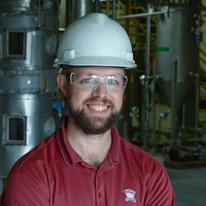
Biography
Mat Koppang is the Technical Sales Manager, Specialty at Crown Iron Works for 3 years. In this role, he utilizes the data generated from pilot scale to design large scale plant protein processing plants.His career started at the Innovation Center at the headquarters in Blaine, MN . Mat has a BS in Chemical Engineering from the University of Minnesota at Duluth. He has supported the operation of several plant protein processing including the production of white flakes and protein concentrates from soy, canola, sunflower, hemp, and other unique operations.
Presenting: Piloting Operations to Commercial Feasibility for Alternative Proteins
In the changing landscape of the alternative protein market oilseed processing has been required to adapt to the demand for sustainable proteins. This leads to a change in how companies need to structure their operations and leads to the development of large scale processing plants. The demand for alternatives has also driven innovation and development of new processing techniques which increases the risk to both the owner and equipment suppliers. As processes develop in the lab new potential products are found and processing techniques appear to have good feasibility. However, increasing the scale of production to meet the demands of consumers or launch a product to market often requires a better understanding of the full cost of production from energy, steam, and yield of products. Commercialization of soy and other oilseed processing will be discussed to provide insight on how piloting provides critical detail for development of commercialization.
Volker Lammers, Platform Manager, DIL

Biography
Volker Lammers is a platform manager at Deutches Institut fur Lebensmitteltechnik. As a food engineer with a focus on development and implementation of innovative technologies for the sustainable production of high-quality foods. He studied Food Technology and Biotechnology at the TU Munich and completed his master course in 2011. Between 2012 and 2016 he worked as a research assistant at ETH Zurich where he received his PhD at the Laboratory of Food Process Engineering. In 2016 he joins the German Institute of Food Technologies (DIL e.V.) and leads the Research Platform Process Engineering. The group focuses on industry-ready solutions in the field of extrusion, 3D printing and other texturization technologies for plant proteins.
Presenting: From Prototype to Production – Scalable Technologies for Protein Texturization
Texture and taste of plant-based meat alternatives are key attributes for consumers’ acceptance. Additionally, a high level of manufacturing efficiency is required to make products affordable and successful in the long term. The transfer from prototyping to production scale is often recognized as a major challenge. Particularly, high-capacity solutions for the texturization of plant proteins using high moisture extrusion have long been considered as a bottleneck. This talk focuses on a step-by-step approach for the development and process design of meat analogues. Robust extruder solutions at throughput rates up to one metric ton per hour are presented. Furthermore, industrial scale methods downstream the extruder are illustrated including cutting, shaping, and marinating. Tasty examples of successful implementation are given.
Christine Lewington, CEO & Founder, PIP International Inc.

Biography
Christine is the CEO and Founder of PIP International. With over 20 years as an entrepreneur and a background in mechanical engineering and project management directly focused in the Agri-food industry, Christine has a strong history of successfully delivering complex projects and leading teams. Her personal interest in driving change through innovation has brought several new commercialization, automation, and sustainability initiatives into reality for several multi-national companies. Now, as founder of PIP, she leads her team as they use past experience and leading-edge technologies to eliminate all emissions and drastically lower their operating costs to bring the most affordable, sustainable and best tasting pea protein to the market.
Presenting: How to save millions and have no emissions from your processing line
This talk will cover the implementation of an innovative Thermal Energy Storage (TES) system that utilizes a patented technology to store heat in crushed volcanic rocks. With the high efficiency and modular design, it is anticipated that the system will fully decarbonize all process heat and generate 100% green power. The design allows for different configurations and sizes to accommodate diverse load demands while the use of non-hazardous storage media ensures zero emissions during operation. Additionally, the TES incorporates a leading edge geothermal electrical generator to supply further electricity from spare therms captured and stored within the battery. Anticipated payback is less than 3 years and will save millions of dollars for PIP and any company that would implement a similar system.
Karen McDonald, Professor Emerita, UC Davis
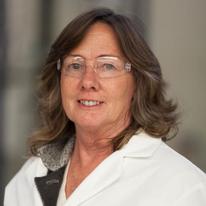
biography
Dr. McDonald is a Distinguished Professor Emerita of Chemical Engineering at the University of California at Davis. Her research is aimed at the development of efficient, environmentally friendly, cost-effective, and globally-deployable biomanufacturing approaches for the production of recombinant proteins using plant-based production systems. Her team’s research integrates synthetic biology in plants with bioprocess engineering, including the development of novel plant viral expression systems, upstream and downstream technologies to produce recombinant proteins, and development of computer-based process models and techno-economic analyses (TEAs) for a variety of biomanufacturing facilities. She is a Fellow of the American Institute of Chemical Engineers and was awarded the 2022 D.I.C. Wang award for Excellence in Biochemical Engineering.
Presenting: Techno-economic Analyses of Large-Scale Alternative Protein Production Facilities
Techno-economic analyses (TEA) based on computer process simulations are critical for evaluation of commercial viability of new manufacturing processes and to identify economic and/or environmental sustainability “hotspots”. TEA are increasingly used alongside scientific innovation by both public and private funding agencies to maximize efficiency of resource allocation. It is particularly important for new and/or non-traditional bioproduction platforms, to demonstrate the manufacturing potential at scale and to identify areas to focus on in process research and development. In silico process modeling and TEA of scaled biomanufacturing facilities allows rapid evaluation of the impacts of process and economic changes on capital expenditures, total manufacturing costs, cost of goods and profitability metrics. Because these models rely on mass and energy balances for all of the unit operations, they can also be used to assess environmental, health and safety impact of a designed biomanufacturing facility to evaluate its sustainability and environmental friendliness. Here we describe what TEAs are, why they are useful, and the steps involved and information needed to develop a TEA. Examples of TEAs we have developed for alternative protein production will also be presented.
Elizabeth Teigland, Application Sales Manager, Tetra Pak

Biography
Elizabeth Teigland is an Application Sales Manager at Tetra Pak, specializing in New Food Fermentation. With two decades of experience, Liz has expertise in portfolio management, product development, and commercialization. Her skills encompass various areas including scale up and scale down, protein fractionation, statistical design, technology transfer, and fermentation development. Liz's academic journey laid the foundation for her career. She has BS degrees from the University of Iowa in Chemistry and Biochemistry. This was followed by an MS in Biochemistry from the University of Oregon. Her early career focus was in fermentation development. More recently, the focus has been in formulation and downstream processing in the Dairy industry, while also growing her skills in talent development & strategic leadership. She oversaw Agropur’s Protein Research Center, leading a team of process technologists and analytical chemists for the development of functional protein ingredients.
Presenting: Harnessing Filtration Technology for Sustainable Down Stream Processing Solutions
This presentation explores the pivotal role of filtration technology in enhancing sustainability within downstream processing. Filtration, has evolved in its applications, offering innovative solutions for efficient separation and purification proteins and ingredients. By delving into the fundamentals of filtration, we elucidate its pivotal role in designing sustainable processes. The speaker will discuss how filtration processes, such as ultrafiltration and microfiltration, effectively separate proteins from raw materials while reducing environmental impact.
Matt Tom, Founder & President, MTCC

Biography
Matt Tom is founder and president of MTCC, an SF Bay Area-based small boutique consulting firm primarily focused on engineering design and implementation in the food & beverage industry with clients worldwide. He has BS in Biological Systems Engineering from UC Davis and his MS in Industrial & Systems Engineering from San Jose State. He is very passionate about agtech/food tech and has built a career around "alt protein" especially in plant-based, cell-based, and fermentation-based meat and dairy analogs. He launched the initial products for many (now big name) food tech startups such as Kite Hill, Impossible Foods, EAT JUST, Ripple Foods, REBBL, and others, as well as collaboration projects with established players like P&G, Clorox, PepsiCo/Frito-Lay, and others. Tom works from end to end: on the product side, from source materials (cells or plant crops) through to finished goods; and on the facility side, from greenfield/brownfield to (fully) automated processing lines.
Presenting: Fermentation Scale Up Overview - Idea To Facility
Precision fermentation is very hot in the Alt Protein space today where many startups have exploded on the scene, making functional ingredients like proteins and flavors that will be used in food product formulations. This talk is an overview that describes how startups move from research labs to their own pilot facility. In this constrained environment, we go through the steps from considering stakeholders, top down vs bottom up approach, and a short brownfield example exercise.
Derik Ward, Sr. Director of Project Engineering, Liberation Labs
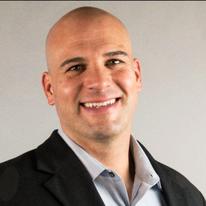
Biography
Derik Ward is a Sr. Director of Project Engineering at Liberation Labs where he is responsible for the project management and detailed design engineering of capital projects. He also oversees and manages the procurement and construction of Liberation Labs first launch facility. Prior to his current role at Liberation Labs, Derik held a variety of positions related to engineering, project management and manufacturing at Bolt Threads, Chromadex, Donaldson Company and Cargill. Derik has a BS in Chemical Engineering from the University of Wisconsin-Madison. He is also a project management certified professional with the Project Management Institute.
Presenting: Scaling Up a Commercial Fermentation Facility for Alternative Proteins
Rising demand for more sustainable-sourced consumer products, fueled by population growth and increasingly eco-conscious, impact-driven consumers has proven too much for the legacy CMO industry. Built primarily for pharmaceuticals, the CMO industry is aged, innovation constrained, and cannot efficiently produce at the cost or scale to achieve profitability for novel biotechnology ventures or downstream price parity for consumers. This issue drives an unsustainable price and quality matrix for the future of biotechnology. This talk will cover a more optimum solution for the growing market highlighting the scale-up of these novel products and processes at a commercial scale which includes continuous sterilization of media and carbon source, more efficient fermentation design and flexible, right-sized downstream recovery unit operations.
Bryce J. Weinand, Climate Solutions Subject Matter Lead, Black & Veatch

Biography
Bryce J. Weinand is the Climate Solutions Subject Matter Lead (SML) within Black & Veatch’s Environmental and Land Services group of professionals. Weinand has been with Black & Veatch for over 15 years. He specializes in conducting greenhouse gas inventories, greenhouse gas life cycle analysis (LCA), and embodied carbon analysis. Weinand understands the needs of clients and assist them with using the proper GHG methods, using appropriate models, determining boundaries, identifying data sources, and conducting the GHG analysis. He is familiar with the many variants of the LCA/GHG Assessments including cradle to grave, cradle to gate, gate to gate, and many more. Weinand is familiar with LCA models including GREET and SimaPro. Weinand also supports client’s needs regarding climate analytics.
Presenting: Basics of LCA: What you Need to Know
Life Cycle Analysis (LCA) for Greenhouse Gases (GHG) is a method to determine carbon intensity of a process. They are useful to quantify impact of the production phase for equipment and materials used in a process, and the impact during operation. However, developing LCAs can be challenging and there are many things to know before jumping in to one to ensure the analysis goes smoothly. The presentation will go over the major steps of an LCA, identifying the methodology, reviewing available tools, and what results are used for. This may sound straightforward, but you may be wondering when the most appropriate time is to develop an LCA. The presentation will provide information on these topics so you can be prepared.